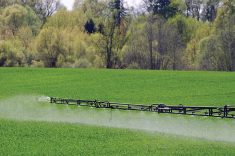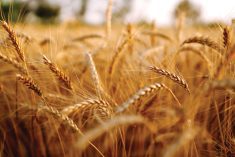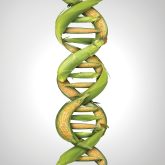Europe’s farmers, especially the wealthiest ones, may see the end of a string of “old-style” subsidy schemes next year as agriculture ministers negotiate the most ambitious policy reforms in five years.
European Union farm ministers met Nov. 19 to negotiate and finalize an agreement on a series of proposed changes to the Common Agricultural Policy (CAP), to be applied from 2009 and run until 2013.
In a planned shakeup, EU Agriculture Commissioner Mariann Fischer Boel wants to trim handouts to larger farms by siphoning off cash into countryside projects, to curtail public safety net commodity buying and to liberalize the dairy market before milk production quotas expire in 2015.
Read Also

Mazergroup’s Bob Mazer dies
Mazergroup’s Bob Mazer, who helped grow his family’s company into a string of farm equipment dealerships and the main dealer for New Holland machinery in Saskatchewan and Manitoba, died July 6 from cancer.
It will be the European Union’s most significant farm reforms since 2003, which introduced the idea of decoupling – breaking the link between how much a farmer produces and the subsidy he receives.
Since then, numerous separate sectoral reforms have been agreed. The most important have been for fruit and vegetables, wine, and sugar. There have also been shakeups of smaller subsidy regimes, including tobacco, olive oil and cotton.
Fischer Boel’s plan in theory claims to be a “health check” of farm policy after the 2003 reforms, although some of her proposals go a lot further than mere tweaking. So they have, unsurprisingly, ruffled a few feathers among EU governments.
Apart from a few payments in the livestock sector that Fischer Boel would allow to remain coupled to production, decoupling of farm subsidies would apply across the board.
“I realize that every minister will have his or her own priorities. We all have our shopping lists, but I believe that we are all in the same shop,” she said in a statement.
“We need to find a workable compromise which everyone can live with. But we need to remain faithful to the principles of the health check. I believe a very good deal is within reach.”
That deal, which diplomats expect sometime early on Thursday after a heavy night of negotiations, is not going to be easy.
France will play an important role as it is chairing the talks as EU president, and is the EU’s largest agricultural producer and a traditional defender of farm subsidies, since it is by far the largest beneficiary of direct spending from EU farm policy.
“There will be a big push within the council (of ministers) for greater scope for coupled payments,” one EU diplomat said. “And the French may very well make a late push to roll back a lot of the (European) Commission’s proposals.”
Milk quotas, wheat
The main problem areas have been well known for months.
Fischer Boel’s idea of income capping for more rural spending is opposed by countries with large farms like Britain, Germany and the Czech Republic. But many feel that the proposed degree of cash channelling away from farmers is way too high.
While big landholders would be hit the hardest, thanks to a tiered system of income brackets, all farm holdings would be hit by progressive annual cuts in subsidies under the plan.
Milk quotas are another major headache for the talks.
Fischer Boel wants to give the EU dairy sector a “soft landing” for the planned abolition of national milk production quotas in 2015, proposing annual one per cent quota increases.
Many countries, especially Germany, are skeptical about the idea, although some say the proposed quota rise is too low.
To solve the impasse, it has been suggested that some countries might get the entire quota increase in 2009 instead of having it divided into annual rises spread over five years.
EU countries might also be able to earmark some of their rural development cash to support their dairy sectors.
On intervention, the safety net public buying system for commodities such as grain, officials have suggested the system might be kept for rice and durum wheat but with a buying-in ceiling of zero. Fischer Boel proposes abolishing it for both.
Soft wheat is a different issue. The commission wants a tendering system and it has upset France, since its farmers would no longer be automatically assured an income for their commodity at a predetermined price paid by Brussels.


















